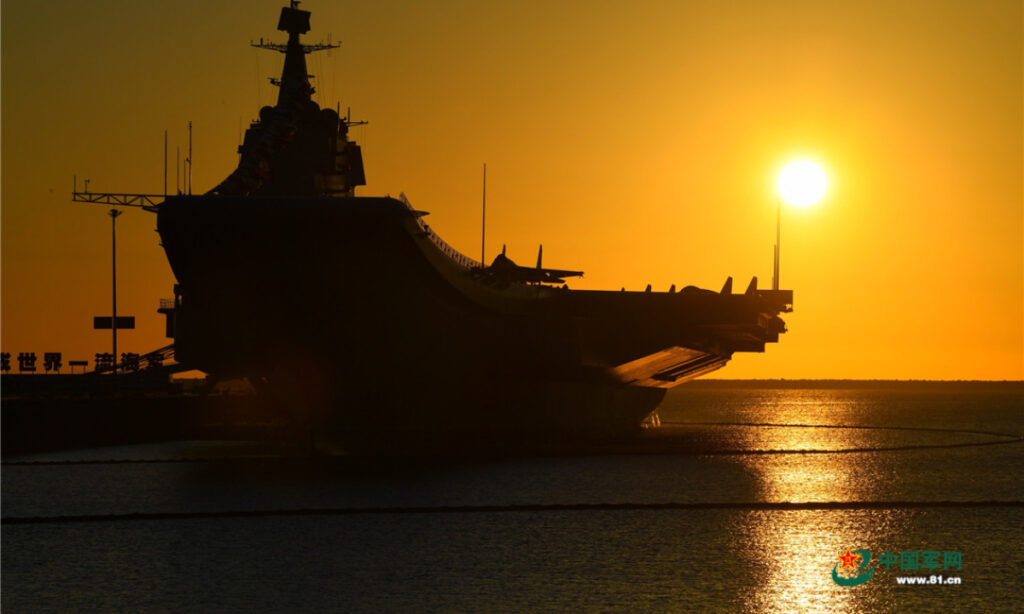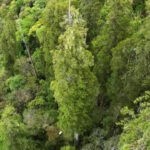A Chinese People’s Liberation Army (PLA) Navy flotilla led by the aircraft carrier Shandong reportedly sailed through the Taiwan Straits on Saturday, amid intensive PLA warplane and warship activities around the island of Taiwan following US delivery of Stinger missiles to the island.
Chinese mainland experts said the Taiwan Straits is the shortest route for the south-based aircraft carrier to travel north for either training missions or maintenance. It can send warnings to the “Taiwan independence” force in the process, experts noted.
Armed forces on the island of Taiwan detected a flotilla of three PLA Navy vessels, including the aircraft carrier Shandong, when they headed north steering along the western side of the Taiwan Straits on Saturday noon, the defense authority on the island confirmed in a press release.
Some 33 PLA aircraft and 10 PLA vessels were detected from multiple directions around the island over the past day, the island’s defense authority said in a separate press release earlier on Saturday.
While the PLA holds daily exercises and patrols around the island of Taiwan, the figures released on Saturday are above the usual average, and could be providing cover for or holding a joint exercise with the Shandong, observers said.
The PLA has yet to announce the Shandong‘s Taiwan Straits transit as of press time, nor has any mission been made public.
Observers said that it could be on a routine training mission or on its way to receive a scheduled maintenance.
China’s first aircraft carrier, the Liaoning, is still undergoing a scheduled overhaul at the Dalian Shipyard in Northeast China’s Liaoning Province since late February, which is not expected to end anytime soon because many key shipborne systems and components have been removed as a part of the refurbishment, according to a news report on May 19.
It is possible that the Shandong could help train north-based carrier aviation units in the Bohai Sea and the Yellow Sea to make up for the absence of the Liaoning, experts speculated.
Both the Liaoning and the Shandong are tasked with the mission to train carrier-based pilots, Song Zhongping, a Chinese military expert and TV commentator, told the Global Times on Saturday.
In early April, as a part of countermeasure against Taiwan regional leader Tsai Ing-wen’s provocative meeting with US House Speaker Kevin McCarthy when she “transited” in the US, the Shandong took part in the combat alert patrols and “Joint Sword” exercises encircling the island of Taiwan, marking the carrier’s first far sea exercise beyond the first island chain since its commissioning in December 2019.
The Shandong cruised from the South China Sea to the eastern coast of the island of Taiwan, then to waters off Guam before returning during the month-long exercise, hosted record-breaking aircraft sorties and collaborated with other forces including the PLA Rocket Force, displaying its high capabilities in deterring “Taiwan independence” secessionist and foreign interference forces.
It could also be possible that the carrier may require maintenance after such intensive operations, analysts said. In past years, the Shandong has used the Taiwan Straits as what experts called the shortest route between its homeport in Sanya, South China’s Hainan Province and the Dalian Shipyard to undergo maintenance, according to media reports.
The Shandong‘s Taiwan Straits transit comes shortly after the defense authority on the island of Taiwan confirmed the first shipment of US FIM-92 Stinger missiles had arrived in the island while Washington is also reportedly helping the island obtain access to NATO’s Link-22 secure data link system.
Song said that the Shandong is expected to play a vital role if a military conflict breaks out in the Taiwan Straits, so it needs to enhance its combat capabilities in all regions, including in the Taiwan Straits and in waters to the east side of the island of Taiwan.
No matter how the US supports “Taiwan independence” forces in resisting reunification by force, the PLA will be able to resolve the Taiwan question, Song said.
(Global Times)




